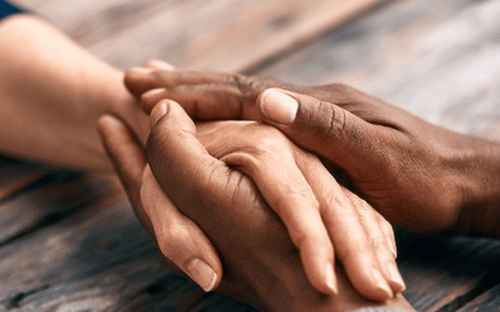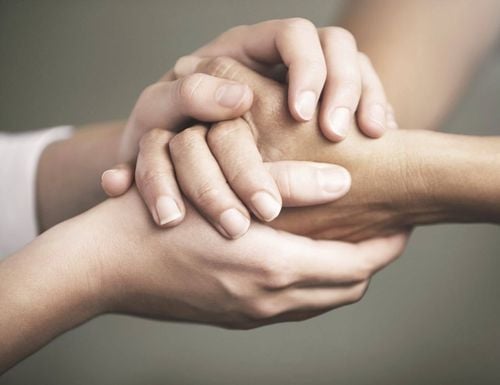This is an automatically translated article.
How to empathize with others - it may not seem like a very special question, but you will be special if you are an empath. People with high empathy are likely to have more friends, more meaningful relationships. So how can we empathize with others?
1. What is empathy? How to empathize? It is understandable that you will know how to empathize with others more when you have information about this seemingly vague concept. Empathy is understanding someone else's experience to the point where you can imagine yourself going through theirs. This is the foundation for kindness and compassion. It helps us in relationships understand the wants, experiences, and feelings of the other person.
Empathy is different from empathy, because empathy focuses only on responding or reacting to experiences.
Empathy can be divided into two types:
Emotional empathy: From the name perhaps you can partly understand the nature of this group. Emotional empathy refers to the state of being able to feel the same emotions as another person, suffering from their difficulty, followed by love. So the feeling of distress you may feel has nothing to do with how the other person feels, but rather your own personal feelings of sadness when the other person is going through something painful. Cognitive empathy: This is how you can rationally perceive and understand what another person is going through. This way to empathize with others is more of a skill than emotional empathy and takes time to hone. Cognitive empathy involves taking time to learn to identify certain emotions and behaviors. Watch now: Imitating emotions creates empathy

Giải đáp làm sao để đồng cảm với người khác?
2. How to empathize with others? Many neuroscientists believe that empathy is merely the process of simulating the same emotions in ourselves that we see in others. However, preliminary evidence suggests that we have specialized neurons in the brain called "mirror neurons" that are activated when we see and feel emotions. Many scientists believe that empathy is generated from these mirror neurons.
Besides, other scientists believe that empathy is created entirely through intelligence. The theory is that we can experience empathy by looking at others and using reason to determine how we should feel or react to the emotions of others.
Although there are many theories, we don't know exactly how empathy is. Chances are, it's a combination of all or some of these theories. In everyday life, empathy is a natural part of human development and even in animals. However, many factors can affect a person's ability to empathize more or less with others. That's not to say empathy is innate, but the fact that you can practice it over time. Some ways to empathize with others you can try:
Feeling more curious about strangers: Empaths are people who are curious about the people around them. They may initiate conversations with strangers or observe others more openly. This curiosity helps us empathize, as it reveals different worldviews, lifestyles, and people we don't often meet. Focus on similarities rather than differences: Each of us has certain biases. There are always ways to corner people in your own judgment and make assumptions about them based on stereotypes or cultural stereotypes. Doing this to other people makes us fail to understand their individuality and uniqueness.

Lắng nghe nhưng cũng phải chia sẻ để đồng cảm với người khác
Put yourself in someone's shoes : For example, instead of walking past homeless people in a train station and simply thinking how unclean they look, try and get a better understanding of life their. Then you will feel the urge to bring them a meal, provide care or contact homeless organizations. Either way, immersing yourself in the lives and experiences of others is a great way to increase your empathy. Listen, but also share: Empathy is not just about having empathy for others, but about expressing yourself to them. Trusting and sharing with someone with your sincere thoughts and feelings is crucial to building a healthy and empathetic relationship with others. Offer to help: When people feel deep grief for the victims of a natural disaster, they come closer to putting themselves in the shoes of the other person. But just feeling the pain of others, although it can enhance feelings of belonging and understanding if communicated, does not maximize the opportunity to improve well-being. The advantage of knowing what other people are going through is that you can better define what the other person needs. Because empathy means you are accepting the emotion, not the difficult situation that gave rise to it. For empathy to be most effective and maximize happiness, it's important that you feel the other person's pain and also know that you can do something about it.
Follow Vinmec International General Hospital website to get more health, nutrition and beauty information to protect the health of yourself and your loved ones in your family.
Please dial HOTLINE for more information or register for an appointment HERE. Download MyVinmec app to make appointments faster and to manage your bookings easily.
Reference source; webmd.com, verywellmind.com













